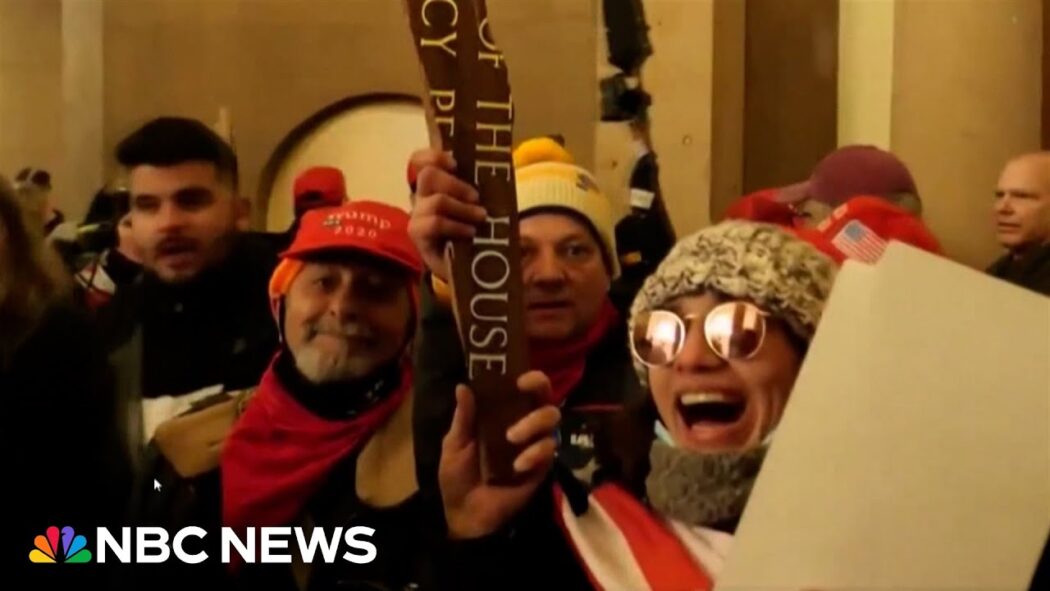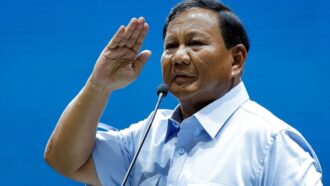Try Adsterra Earnings, it’s 100% Authentic to make money more and more.

In First-Ever Meeting on Corruption, Briefer Says War Has Been ‘Very Lucrative’ for Small Groups of Conflict Profiteers
In its first‑ever meeting to address the links between corruption and conflict, the Security Council today considered ways to effectively disrupt the illicit siphoning of money by leaders and other practices that weaken State institutions, thereby making a country susceptible to conflict.
“Corruption breeds disillusion with Government and governance and is often at the root of political dysfunction and social disunity,” Secretary-General António Guterres told the 15‑member Council, which bears the mandate for the maintenance of international peace and security.
Noting that corruption can also be a driver of conflict, upon which it thrives, and is linked to such forms of instability as illicit trafficking in arms, drugs and people, terrorism and violent extremism, he stressed that the problem is present in all nations — rich and poor, North and South, developed and developing. Citing estimates by the World Economic Forum, he said the global cost of corruption is at least $2.6 trillion, or 5 per cent of the global gross domestic product (GDP), adding that, according to the World Bank, businesses and individuals pay more than $1 trillion in bribes every year.
Also briefing the Council was John Prendergast, Founding Director of the Enough Project and Co‑founder of The Sentry, who said: “Regrettably, there is currently no coordinated strategy to gain the necessary leverage to disrupt the illicit siphoning of money by leaders and their foreign business partners, or to break the link between corruption and conflict.” He added: “Throughout history, war may have been hell, but it has been very lucrative for small groups of conflict profiteers.” Today’s deadliest conflicts in Africa, such as those in South Sudan, Somalia, northern Nigeria, Sudan, the Central African Republic and the Democratic Republic of the Congo, are sustained by extraordinary opportunities for illicit self‑enrichment that emerge in war economies, where there is a visible nexus between grand corruption and mass atrocities, he said, calling upon the Council and other interested parties to take the necessary measures, such as levying sanctions against entire networks, not just individuals; strengthening anti‑money‑laundering measures; and prosecuting financial crimes associated with atrocities.
In the ensuing debate, the representative of the United States, which holds the Council Presidency for September, spoke in her national capacity, noting that her delegation convened today’s meeting because the relationship between corruption and conflict has gone unaddressed for too long. The problem, “which has been staring us in the face”, allows transnational crime and drug trafficking to flourish, resulting in massive flows of desperate people and posing challenges to regions as well as the wider global community. Recalling that the “Arab Spring” was a result of popular protests against corruption, she said the United Nations remains too willing to ignore corruption as simply “the cost of doing business” in many countries.
The Russian Federation’s delegate said that corruption exists in all nations, including the United States, whose delegate lectured the Council on the issue today. He noted that in that country’s unique system of legalized lobbying, commercial interests are inextricably linked with Government contracts. He went on to state that his country places particular importance on the review mechanism of the United Nations Convention against Corruption, based on the principles of State sovereignty and non‑intervention in domestic affairs. However, the Russian Federation does not support efforts to enshrine corruption as a new item on the Security Council’s agenda, he emphasized, warning that such an eventuality will only lead to the undermining of existing international instruments.
Bolivia’s representative stressed that the issue of corruption falls under the purview of the General Assembly, cautioning that the Council’s encroachment on the work of other organs could risk undermining the United Nations Charter and imperilling the rights of nations. The Council must not allow today’s meeting to be viewed as a precedent, or the issue of corruption to be used for ideological purposes, he said, while underlining that it should not be used as a pretext for undermining the legitimacy of Governments or to push for regime change.
Ethiopia’s representative noted that, while nothing prevents the Council from considering corruption in the context of specific situations on its agenda — through appropriate sanctions or banning trade in natural resources — it should avoid encroaching on the mandates of other United Nations organs, given the many urgent peace and security issues already requiring its attention.
Côte d’Ivoire’s delegate said his country has overhauled institutional structures to stamp out corruption, noting that corruption has the potential to damage peace and security in post‑conflict countries, which could relapse due to weak institutions, potentially getting caught in a vicious cycle. Peace agreements should therefore include anti‑corruption elements, he argued.
Also speaking today were representatives of the United Kingdom, France, Kazakhstan, China, Netherlands, Sweden, Peru, Kuwait, Equatorial Guinea and Poland.
The meeting began at 10:04 a.m. and ended at 12:02 p.m.
Opening Remarks
ANTÓNIO GUTERRES, Secretary‑General of the United Nations, emphasized that the problem of corruption is present in all nations — rich and poor, North and South, developed and developing. The World Economic Forum estimates the global cost of corruption is at least $2.6 trillion, or 5 per cent of the global gross domestic product (GDP). According to the World Bank, meanwhile, businesses and individuals pay more than $1 trillion in bribes every year. “Corruption robs schools, hospitals and others of vitally needed funds,” he said, adding that it also rots institutions – even as public officials enrich themselves or turn a blind eye to criminality – while also depriving people of their rights, driving away foreign investment and despoiling the economy.
“Corruption breeds disillusion with Government and governance and is often at the root of political dysfunction and social disunity,” he continued, noting that the poor and vulnerable suffer disproportionately from it. Corruption can also be a driver of conflict, upon which it thrives, and is linked to such forms of instability as illicit trafficking in arms, drugs and people, terrorism and violent extremism. Member States must be on the front lines of the fight against corruption, he said, underlining the need to build up national anti‑corruption commissions and prosecutorial efforts. Governments can also counter corruption by ensuring independent judiciaries, a vibrant civil society, freedom of media and effective whistle‑blower protections, he said.
Recalling that he has often called for heightened efforts in those areas, he said the fight against corruption and addressing governance challenges — which lie at the heart of many conflicts — must be a component of preventive approaches. “This is an opportunity to build a solid foundation of trust and accountability to increase a society’s resilience to crisis,” he said, adding that United Nations peace operations should employ a clear anti‑corruption lens. Recalling that the African Union launched 2018 as the African Anti‑Corruption Year during its January summit, he said there are ways in which the United Nations can also play a role in supporting Member States. The United Nations Convention against Corruption, which entered into force in 2005, now has 186 States Parties, and the crime of corruption is on the books of nearly every nation in the world. Encouraging all States to implement the instrument with greater resolve, he called for the use of technological advances to expand public participation and increase accountability.
Briefing
JOHN PRENDERGAST, Founding Director, Enough Project, Co‑founder, The Sentry, said that war may have been hell throughout history, but it has been very lucrative for small groups of conflict profiteers. Today’s deadliest conflicts in Africa, such as those in South Sudan, Somalia, northern Nigeria, Sudan, the Central African Republic, and the Democratic Republic of the Congo, are sustained by extraordinary opportunities for illicit self‑enrichment that emerge in war economies, where there is a visible nexus between grand corruption and mass atrocities, he said. State armies and rebels use extreme violence to control natural resources, labour and smuggling networks, including those trafficking in wildlife.
Violence becomes self‑financing from pillaging, looting of natural resources and stealing State assets, he said, noting that banking and business connections extend to New York, London, Dubai and other global financial centres. In these hijacked African States, the dynamics of which are replicated in other war‑torn countries such as Afghanistan, Iraq and Syria, military and civilian leaders use networks of commercial collaborations and financers from inside and outside their own countries to enrich themselves, benefit their commercial and political networks, and maintain an iron grip on power. “The bottom line is that war is more beneficial than peace for those at the centre of conflict and corruption,” he said. Regrettably, there is currently no coordinated strategy to gain the necessary leverage to disrupt the illicit siphoning of money by leaders and their foreign business partners, or to break the link between corruption and conflict.
The policy tools that can provide the Security Council and other interested parties with maximal leverage, he continued, are threefold: a network‑focused approach to sanctions that concentrates on grand corruption; anti‑money‑laundering measures that focus on the illicit movement of money through the international financial system; and prosecutions that focus on financial crimes associated with atrocities. Sanctions must be levied against entire networks, not just individuals, he emphasized, recalling the approach that the Security Council and others took to propel Iran and the Democratic People’s Republic of Korea to the negotiating table. The Council should also enhance its engagement with anti‑money‑laundering bodies, such as the Financial Action Task Force (FATF) and FATF‑style regional bodies and ensure that sanctions regimes include references to the importance of combating the laundering of the proceeds from corruption. Courts must be mandated to prosecute financial crimes, particularly those rooted in corruption, when connected to conflict and atrocities. The International Criminal Court and other courts of special jurisdiction must have the authority to complement the political tool of sanctions or the regulatory tool of anti‑money‑laundering measures with the judicial tool of prosecution, he stressed.
Statements
NIKKI R. HALEY (United States), Council President for September, spoke in her national capacity, emphasizing that the relationship between corruption and conflict has gone unaddressed for too long. The problem, “which has been staring us in the face”, allows transnational crime and drug trafficking to flourish, resulting in massive flows of desperate people and posing challenges to regions as well as the wider global community. Recalling that the “Arab Spring” was a result of popular protests against corruption, she said the United Nations nevertheless remains too willing to ignore corruption as simply “the cost of doing business” in many countries. Warning against that approach, she said corrupt officials such as former President Viktor Yanukovych of Ukraine are often ousted by their own people. Elsewhere, however, such extremist groups as Boko Haram have gained popular support by taking a stance against corrupt officials. Outlining steps taken by the United States to combat corruption, she said it imposed targeted sanctions against corrupt officials in accordance with its Foreign Corrupt Practices Act, the Magnitsky Act and other anti‑corruption laws.
KAREN PIERCE (United Kingdom), agreeing with other speakers that corruption by lower‑level officials often undermines Governments and others trying to do the right thing, expressed concern over the vice that former Secretary‑General Kofi Annan once called an “insidious plague”. It thrives on conflict and supports the narratives of extremist groups, she noted. The United Kingdom has its Criminal Finances Act in place and has established a national register to ensure that the country is not used as a refuge by overseas criminals. In today’s interconnected world, however, there must also be a properly joined‑up global response, she emphasized. Calling upon those States that have not yet done so to ratify the Convention against Corruption without delay, she recalled that a summit held in the United Kingdom resulted in the creation of the International Anti‑Corruption Coordination Centre and systems intended to help return stolen assets to Governments and their people. Among its other international assistance, the United Kingdom is currently helping the Government of Nigeria to counter financial crime and combat corruption at the national level, she said.
FRANÇOIS DELATTRE (France) said corruption — which is both a consequence and driver of conflict — poses a threat to international peace and security and should therefore be addressed by the Council in a purely non‑ideological way. France has adopted a pragmatic approach to fighting the “insidious evil”, which rots both security and development gains around the globe, he said, stressing that the international community must remain fully galvanized in the fight against corruption at all levels. He called for full implementation of the Convention against Corruption and for strong monitoring systems at the national level. Sharing elements of France’s experience in that regard, he said it has mobilized both national authorities and non‑State private sector actors on the ground in the fight against corruption, and urged other States to develop similar cross‑sectoral approaches. He went on to describe the new National Anti‑Corruption Agency while underlining the important role to be played by regional and subregional organizations in developing strong anti‑corruption instruments.
KAIRAT UMAROV (Kazakhstan) said his country has its own experience of fighting different threats to peace and security at the national, regional and global levels. Stressing the need to support efforts to prevent and control corruption in order to ensure peace, he said there is also a need to do that through interaction with the United Nations, International Criminal Police Organization (INTERPOL) and other specialized institutions and regional organizations. Turning to the links between development and security, he underscored the need to promote a threefold strategy: creating the potential for closely complex, multifaceted and case‑specific relationships between security and development; taking an innovative revamped regional approach; and strengthening coordination with the United Nations to increase effectiveness and ensure greater transparency and accountability.
GBOLIÉ DESIRÉ WULFRAN IPO (Côte d’Ivoire) stressed the importance of the fight against corruption, especially in post‑conflict situations, adding that there is no doubt that corruption is a root cause of conflict, and that his country has faced that challenge. Corruption undermines the ability of State institutions, whether they are administrative, judicial or security entities. Corruption has the potential to damage peace and security in post‑conflict countries. He stressed the need for local ownership of anti‑corruption measures. Post‑conflict countries could relapse into conflict due to weak institutions, potentially getting caught in a vicious cycle, he said, emphasizing that peace agreements should include anti‑corruption elements. Côte d’Ivoire has overhauled institutional structure to stamp out corruption, including introducing a financial information system against money‑laundering and transparent procurement policies, he noted.
MA ZHAOXU (China) urged the international community to act in unison to prevent corruption, abiding by the United Nations Charter and aiming for the peaceful resolution of disputes, while not interfering in domestic affairs and basing efforts on equal partnerships. Describing poverty and underdevelopment as the root cause of instability, he said it is essential to honour commitments made to provide development assistance to underdeveloped countries, and to help them enhance their own development capacities so that they can enjoy the peace dividend. China and Africa share a future vision through win‑win cooperation, he said, citing the creation of the China‑Africa Security Cooperation Fund and the China‑Africa Peace and Security Forum. Within the United Nations framework, China will continue to participate in peacekeeping operations, he said, adding that international relations require a new vision characterized by cooperation. “Corruption is the common enemy of mankind,” he said, stressing that no breathing space should be left for corruption.
LISE GREGOIRE VAN HAAREN (Netherlands) said that if the rule of law is the medicine for stability, then corruption is the virus that breeds conflict. A report by the United Nations Development Programme (UNDP) indicates how corrupt and ill‑performing Governments push people into the hands of violent extremists, she said, contrasting them with corruption‑free Governments that have proven to be a source of resilience. Turing to accountability, she said it requires the separation of powers, checks and balances, and judicial follow‑up. It also requires transparency, she added, expressing support for Transparency International, which issues an annual anti‑corruption index. Corruption undermines implementation of the 2030 Agenda for Sustainable Development by raising the cost of sustainable development, she said, stressing that tackling corruption is vital.
OLOF SKOOG (Sweden) said that corruption contributes to the destabilization of fragile States and is ultimately one of the drivers of conflict, citing the recent United Nations‑World Bank study that identifies corruption as an underlying source of conflict and violence. The peacebuilding and sustaining peace agendas of the United Nations are also relevant in the fight against corruption, he said, noting that Security Council resolution 2282 (2016) on sustaining peace stresses the need to strengthen rule of law and promote accountability, good governance and gender equality. Sweden accorded high priority to anti‑corruption efforts, which have become increasingly important in its work for development in recent years, he said, adding that Sweden also supports partner countries in combating corruption by helping to strengthen their tax and audit authorities.
VASSILY A. NEBENZIA (Russian Federation) agreed that conflicts often drive corruption, while emphasizing that struggles over resources — including not just domestic but also foreign players — are also a major factor. Corruption exists in all nations, including the United States — whose delegate lectured the Council on the issue today. Describing that country’s unique system of legalized lobbying in which commercial interests are inextricably linked with Government contracts, he said the statement by the representative of the United States also misrepresented the departure of Ukraine’s former president. In fact, that was a coup in which Ukraine only exchanged one corrupt regime for another, he said. Recalling that the Russian Federation was one of the first States to sign and ratify the Convention against Corruption, he said the country places particular importance on that instrument’s review mechanism, based on the principles of State sovereignty and non‑intervention in domestic affairs. Expressing support for the United Nations Office on Drugs and Crime (UNODC) and its provision of expertise to Member States, he said more efforts are needed to eradicate gaps and inconsistencies in how corruption, money‑laundering and related crimes are tackled at the global level. He emphasized that his delegation does not support efforts to enshrine corruption as a new item on the Security Council’s agenda, warning that such an eventuality will only lead to the undermining of existing international instruments.
GUSTAVO MEZA-CUADRA (Peru) expressed support for strengthened international cooperation to combat corruption, a root cause of conflicts and humanitarian crises which also helps to drive both extremism and trafficking crimes. The fight against corruption and organized crime — as laid out in the Convention against Corruption and Sustainable Development Goal 16 — is therefore critical, he said, emphasizing that States must work together to create a culture of integrity and ensure appropriate checks and balances, including by providing their people with access to justice and ensuring the full inclusion of women and young people. He recalled that during a recent Summit of the Americas, States reiterated their support for the Convention against Corruption through the Lima Commitment “Democratic Governance against Corruption”, which includes 57 concrete measures aimed at strengthening regional cooperation. The fight against corruption should also be reflected in the mandates of peacekeeping operations established by the Council, he said.
SACHA SERGIO LLORENTTY SOLÍZ (Bolivia) echoed concerns about the negative impacts of corruption, noting that it often results from weak institutions, lack of resources and insufficient development. The issue therefore falls under the purview of the General Assembly, he said, emphasizing that the Council — if addressing it — must do so in strict adherence to the principles of the United Nations Charter. Cautioning that the Council’s encroachment on the work of other United Nations organs could risk undermining the Charter and imperilling the rights of nations, he said that taking up the general issue of corruption in the Council will only lead to further politicization. The organ must not allow today’s meeting to be viewed as a precedent or the issue of corruption to be used for ideological purposes, he said, while underlining that it should not be used as a pretext to undermine the legitimacy of Governments or to push for regime change. Member States themselves must tackle corruption, he stressed, noting that in Bolivia, the Government has voluntarily decided to “lift the veil of banking secrecy” — an action that should become a model for countries around the world. At the regional level, the Lima Commitment and other instruments provide guidance to help States tackle corruption, he added.
MANSOUR AYYAD SH. A. ALOTAIBI (Kuwait) emphasized the need to shift from general sanctions to targeted ones, pointing out that “corruption does not exist in a vacuum”. It is closely interlinked with poverty, human rights violations and the absence of the rule of law, he said, adding that corruption prolongs conflict and threatens regional and international peace and security, while undermining development and slowing down economies. The Convention against Corruption is a solid legal framework which includes measures that will lead to a drop in corruption, if implemented by States Parties, he said, calling upon Governments, civil society and other stakeholders to take a united stand against corruption. He also called for bolstering regional networks in order to exchange information and enhance cooperation. He recalled that Kuwait established its anti‑corruption authority in 2016 to implement the Convention.
ANATOLIO NDONG MBA (Equatorial Guinea), while noting that the briefing is taking place one day after Africa Day, emphasized that corruption besets all countries. Noting that corruption could lead to unrest and war, he said that his country has fallen victim in the past. The President has taken appropriate action to fight corruption, and the national development plan underscores the need for good governance to attain development goals, he said, adding that the Government has provided resources to combat corruption in other parts of Africa in the spirit of cooperation. The African Union urges countries in conflict to strengthen State institutions, he said, stressing also that peacekeeping, peacebuilding and special political missions must have greater access to global financial information.
JOANNA WRONECKA (Poland) emphasized that corruption is not just an internal problem within a country. It undermines the ability of armed security forces to stand up against terrorists, enabling terrorists to gain access to funding. It is the cause of many conflicts, a threat to international peace and security, and an obstacle to peacebuilding, she said, adding that this leads to one conclusion: corruption is not confined within national borders. Urging greater application of financial pressure, she called upon donors to stop financing if Governments fail to prevent corruption, adding that the Security Council has a better chance if it imposes sanctions on multiple targets at once. Describing good governance as the cornerstone of modern democracy, she said civil society is an essential partner.
MAHLET HAILU GUADEY (Ethiopia), agreeing that corruption could pose a threat to the stability and security of societies and jeopardize sustainable development, nevertheless emphasized that the issue does not fall within the Council’s purview. With many urgent peace and security issues already requiring its attention, the Council should avoid encroaching on the mandates of other United Nations organs, she said. Noting that nothing prevents the Council from considering corruption in the context of specific situations on its agenda — through appropriate sanctions or bans on trading in natural resources like charcoal, oil or minerals, as has been the case so far — she said the Council should continue to employ such tools to help mitigate the negative impacts of corruption in instigating and fuelling conflicts and violence. Corruption cannot be viewed in isolation because it is not the only factor but rather a manifestation of many other political and socioeconomic challenges contributing to instability. Similarly, sanctions should not be the only tool used, she said, emphasizing the need to address the root of such challenges. Many African nations face serious challenges as a result of corruption, she said, outlining priority counter‑measures being undertaken by the African Union and its subregional organizations. Greater cooperation and collaboration between those entities should be encouraged, she added.
Published By






